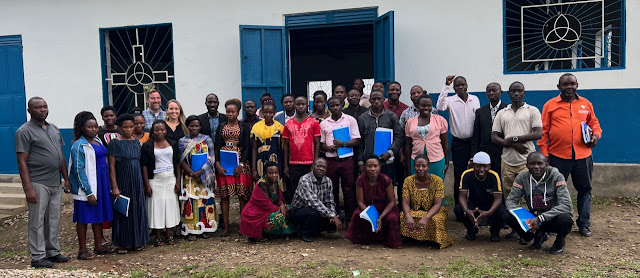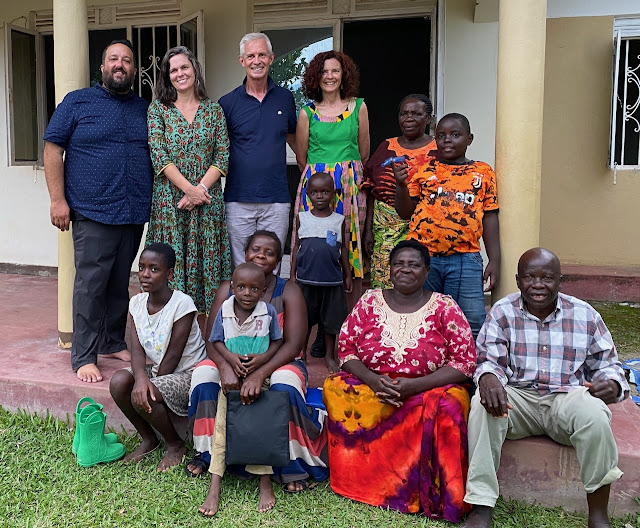This morning, Scott and I dropped in on a workshop to teach teachers how to teach kids to read.
That sentence is hugely important, on SO MANY levels.
First, we know that reading is foundational to learning, so a strong grasp of decoding the written word is essential for all students in all cultures to learn all their other subjects. Second, reading opens up connection to God through Scripture, and a Lubwisi Bible is only as helpful as the capacity to read it. Third, reading competence seeps out into all of life, into contracts and shopping and road signs and menus, into newspapers and media and connections to the world at large. Lastly, we are creative beings, and the spoken and sung truths of this place will last longer if they can be written down.
But in a culture where their own mother-tongue language has only been in written form within the last two decades, where there are NO books or print media other than the New Testament and a few primers, where almost NO CHILD is exposed to books in their home . . . teaching reading is truly a mountain of a task. The primary school teachers themselves were not taught phonics as children, it's a new concept, and until the last couple of years all teaching of reading has been in English and by memorising sight words. Thankfully the Carrigans had the insight to begin connecting with a "Read for Life" program here in Uganda, and sponsored some local teachers to be trained in how to use phonics-based instruction. The McClures wisely saw the importance and value of this program, and have continued to support it and collect data. They've shown that even in a few weeks, it is possible to significantly improve the ability of students to identify sounds with letters. In the few short weeks that Ugandan schools were open in 2021, they pre- and post- tested a sample from the Read for Life trained teacher schools and control schools. The control (no intervention, normal baseline instruction) school students increased their sound recognition by 0%, and the Read for Life phonics-based instruction school students increased by 66%. In only 5 weeks. Then when schools shut down for COVID, the McClures arranged for literacy camps for kids here on the mission. Those kids similarly made huge leaps in their reading ability.
 |
| Literacy camp students last year |
This year, in 2022, with schools finally back in session, the next step is to have the five Read for Life trained teachers teach OTHERS. So as we entered the first term break, Patrick and Alexis put together a training for about 30 teachers in 7 local primary schools. They invited them to a 3-day workshop at . . . Christ School! Which has the added advantage of connecting our secondary school with primary schools, giving teachers a view of the goal of preparing their younger students for success. And our brand new chapel is doing just what we hoped it would, blessing the broader community.
So we listened briefly to the work of teaching sounds, putting together words, getting class participation. The training uses the same active, involved, aural and visual and motion-aided teaching styles that will make these men and women better teachers in general, as well as more comfortable with phonics. It's been fun to see our team mates facilitate this, because if you are a Kindergarten/early primary teacher in America, nothing gives you more joy than seeing the same great portal to reading being opened for a few dozen teachers who will take it to hundreds of kids, eventually impacting thousands. And it is in our heart that the Lubwisi Bible and Literacy group can carry this forward in the local language too.
Christ School is more than an academically excellent secondary option locally. It is a place where little seeds of justice are nurtured to flourish, as our students become teachers and our doors open to help other primary school teachers learn to bless children, the effect is multiplied. We're half-way through our 3-week break between school terms, but today we glimpsed redemption of that time as our space was used to augment educational capacity in the district. And afterwards we walked around to thank the workers also using the time to paint staff housing, repair other buildings, keep working on our perimeter brick fence which has become more necessary as our environment urbanizes. Thankful for our supportive partners who invest, and if you're one of them reading to the end, know your investment is reaching many.


















.jpeg)









